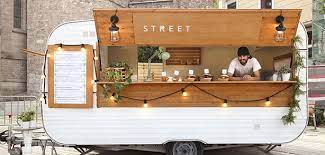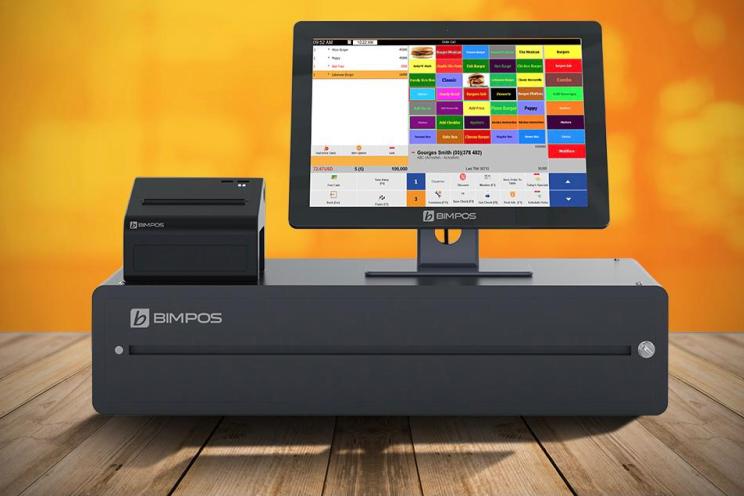
Your guide to start a successful food truck business
It’s summertime and everybody becomes more outgoing and more active. Events and festivals become more recurrent in outdoor areas. We see many events that host food trucks whether in beaches or in concerts, or street festivals.
You have an existing restaurant and you are considering opening a food truck to cover these events to serve guests that won’t be visiting regular restaurants?
Or maybe you’re only looking to open a food truck business to cover these events and startup your journey in the food & beverage sector.
In both cases, it’s a smart move since having a food truck business offers you many benefits including lower operating costs. In addition, you have the flexibility to change your location and be exposed to different communities and markets.
It’s your chance to attract new customers especially if you are already operating in a brick-and-mortar restaurant or at least you’re planning to open one in the future.
It doesn’t mean that opening a food truck is hassle free as you still need to study the market and the competition and have yourself a clear business plan. But food trucks are becoming very popular according to a survey done by Food Truck Operator that found 59% of consumers who have eaten at a food truck, prefer food trucks over a regular restaurant.
What do you need to run a successful food truck business?
Define Your Concept
Choose a unique and appealing concept for your food truck. Consider your passion, culinary expertise, and what will resonate with your target audience.
Design a menu that is focused, offers a variety of options, and stands out from the competition. You don’t need to have several items on the menu. Stick with popular yet profitable items.
Menu engineering is what you need to put together a profitable menu that will actually sell.
Consider dietary restrictions and trends such as vegetarian, vegan, gluten-free, or organic options.
Secure funding
Calculate your startup costs, including the purchase or rental of a food truck, kitchen equipment, permits, licenses, and initial inventory and estimate your operating expenses, such as food supplies, fuel, maintenance, staff wages, and marketing expenses.
Determine your pricing strategy to ensure profitability while remaining competitive.
Explore various funding options such as personal savings, loans from banks or investors, or small business grants. Prepare a detailed financial projection to demonstrate the viability of your food truck business.
Acquire Necessary Permits and Licenses
Check the local regulations and requirements for operating a food truck in your area. Obtain the necessary licenses, permits, and certifications, such as health permits for food handling and preparation, business licenses, and parking permits and operating hours.
Study your competition
Study your competition and identify gaps in the market that you can fill. For example, if you decide to join a festival where other food tracks exist. Check their menu. Do you want to offer burgers or tacos if other food trucks are already serving these items?
If yes, then you must have a competitive advantage over the existent food trucks. If your prices are higher, you have to offer a premium quality or fresh ingredients.
You may decide to serve food items that no other food truck is selling but you still need to choose popular items that will appeal to the crowd and it has to be convenient for a quick bite probably while people are standing up.
Choose the Right Location
Identify high-traffic areas, events, and popular gathering spots in your area. Consider parking regulations, proximity to your target market, and competition. Seek permission from property owners or event organizers to park your food truck.
Consider participating in food truck events or collaborating with local businesses to increase your visibility.
Acquire & design your food truck
- Decide whether to buy a new or used food truck, or retrofit an existing vehicle.
- Consider the size, layout, and equipment needed for your menu.
- Ensure your truck meets health and safety standards, including proper ventilation and storage facilities.
Create an eye-catching design that reflects your brand and cuisine. Use appealing visuals and signage to attract customers. You may consult a professional designer for assistance.
Build Your Brand
It’s your chance to develop a unique and memorable brand identity, including a name, logo, and color scheme. Establish a presence on social media platforms at least if can’t afford a website.
You should implement a marketing strategy that includes online and offline promotion, such as food tastings, partnerships, and loyalty programs.
Hire and Train Staff
You need to determine the number of employees needed based on the complexity of your menu and expected customer volume depending on the events you will be attending.
Hire skilled, customer-oriented staff who can handle food preparation, customer service, and cash handling efficiently. Train your staff on food safety, hygiene, and your brand standards.
Provide Excellent Customer Service
The most important thing to establish is a good customer relation through delivering exceptional customer service and build a loyal customer base. Ensure quick and efficient service during peak hours.
Don’t forget that hearing back from customers is essential to fix any issue that affects your relationship with them. Collect customer feedback and make adjustments to improve your offerings.
Monitor and Adapt
Continuously evaluate your business performance and make necessary adjustments. Monitor your expenses, sales, and customer feedback to identify areas of improvement. Your way to do that is through a POS that generates reports for every aspect of your business enabling you to detect problems in expenses, sales, menu items and so much more.
Stay up-to-date with food trends and adapt your menu accordingly.
Remember, starting a food truck business requires hard work, dedication, and flexibility. By following these steps and staying committed to delivering high-quality food and service and adopting technology for seamless operations, you can increase your chances of running a successful food truck business.





